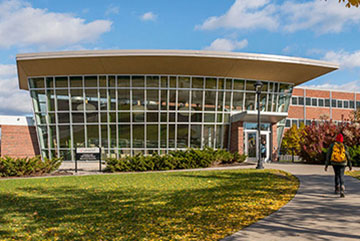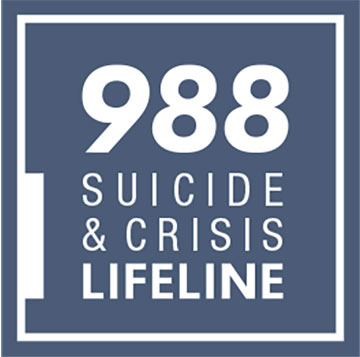
08/15/2022
A new phone number is making mental health services easier to access, both across the nation and at SUNY Cortland.
Anyone who calls or texts 988 will now be answered by the 988 Suicide & Crisis Lifeline. It’s a national effort to help anyone experiencing mental health-related distress — whether that is thoughts of suicide, mental health or substance use crisis, or other kinds of emotional distress. People can also dial 988 if they are worried about a loved one who may need support.
It’s a change that Emily Quinlan, assistant director of Care and Outreach Services, says will help alongside SUNY Cortland’s own dedicated efforts to promote mental well-being.
“Similarly to physical health issues, mental health affects our daily lives and needs to be taken seriously,” Quinlan said. “While mental health symptoms are often invisible, they are just as impactful. It can be frustrating and demoralizing when individuals are trying their best to address their mental health needs and they still feel unsupported.”
Quinlan noted that students can also call 607-753-4728 to reach the university Counseling Center, which provides free and confidential short-term therapeutic services.
“There are numerous resources on campus that can be utilized to help support mental health,” Quinlan said. “Our University Police are often first responders when there is a mental health crisis and they do a phenomenal job assisting students.”
The national mental health hotline began in 2005 as the National Suicide Prevention Lifeline, using the number 1-800-273-TALK. Since then, it has taken more than 23 million calls, with 2.4 million in 2020 alone. While the old phone number is still usable, the easier- to- dial 988 will be the focus from now on.
The change is designed to make mental health services convenient, quick and dependable to anyone who needs it. Before the switch to 988, the longer phone number used by the Lifeline would sometimes be ignored in favor of general emergency number 911. Not only did this overburden the 911 system, but the response to mental health calls would often come from police or emergency health services instead of trained crisis counselors.

Individuals who contact the number will be helped by trained mental health professionals at one of more than 180 local crisis centers around the country. For those who don’t feel like talking by phone, there is an online chat option at 988lifeline.org/chat.
The counselors available through the 988 number can assess and de-escalate a crisis and connect callers to appropriate services. If needed, they will still route calls to law enforcement when an incident needs more than a behavioral health response.
According to 988lifeline.org, only 2% of Lifeline calls in New York State in 2020 resulted in emergency medical services being dispatched to the caller, reducing the crunch on emergency resources. Most callers also reported significant relief from psychological pain, hopelessness and anxiety.
Yet despite the available help, the elusive nature of mental health is what can make treatment difficult. Quinlan says that being proactive can make a big difference.
“Asking someone if they are suicidal does not put the thought in their head. It is OK to ask if you are concerned about someone. Never hesitate to call for help.”
To learn more about SUNY Cortland’s available mental health services, visit the website.